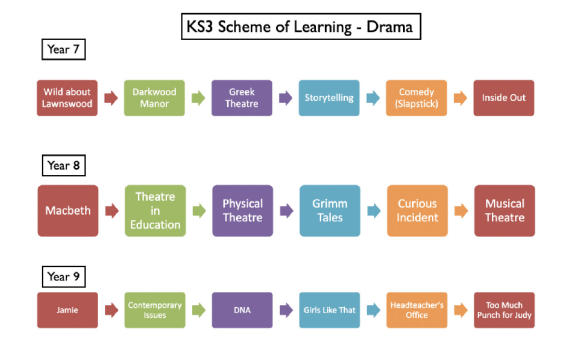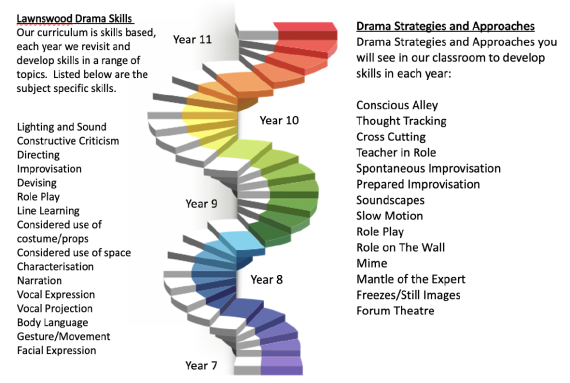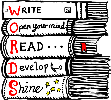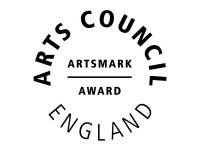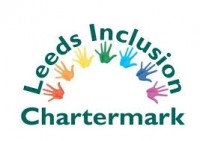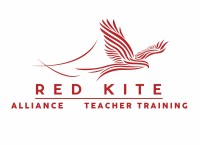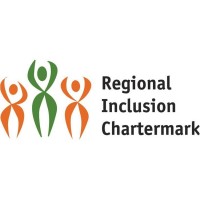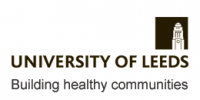“Learning in and about the arts is essential to intellectual development.”
- Ken Robinson, Creative Schools: The Grassroots Revolution That's Transforming Education
“Art is not a mirror held up to reality but a hammer with which to shape it.”
- Bertolt Brecht
The Curriculum Intention
The key concepts in drama are skill driven and aim to build personal skills which can be relied upon to succeed, not only in drama lessons but beyond school life and in future employment. At the heart of drama is the development of these skills in all young people; engagement, communication and oracy, creative imagination, clarity of expression, autonomy, leadership confidence and cooperation. There is more to drama than being able to perform on stage. Opportunities are embedded for students to be able to hone and develop performance talent but equally important is the ability to understand the purpose of the theatre we create. Methodologies of theatrical practitioners are introduced throughout the key stages to enable students not only to ‘re-enact’ but to shape their own unique ideas with a greater understanding of the need for style, intention, theatrical form and to learn to celebrate individual and unique perspectives.
The Health and Performance Faculty Vision includes three key strands which underpins our subject area within Lawnswood School:
- Creativity and Performance
- Physical and Emotional Health and Wellbeing
- Engagement Opportunities beyond the classroom
The Lawnswood School Drama Department has opportunity for:
- the real-world application of drama skills within chosen professions
- developing the wider / softer skills which underpin the successes of young people throughout their lives
- developing students social and emotional understanding by exploring the world around us through storytelling
The National Curriculum has a basic outline of what is expected from the Drama Curriculum in terms of its links to English and we are lucky to broaden the theatrical experiences for students here at Lawnswood by offering a dynamic curriculum.
We have divided the learning experience into three strands:
- the performance of drama
- the analysis and understanding of theatrical conventions
- the evaluation of drama
Emotional wellbeing, empathy and storytelling at the centre of the taught units and students can build their stage skill and theatricality as a result of exploring themes through techniques. There are ongoing opportunities through practical theatre-making, watching each other make and perform work and responding using theatrical vocabulary which allow learners to develop their own understanding and to be able to form assessment judgements which are appropriate to the work they have done, and can be used to inform the next stage of their theatrical journey. At KS3 assessment might look like a short performance based around a key theme and skill and students are given verbal feedback at all stages in the practical classroom and given PINs feedback as part of the learning swirl. Such assessments are understated and are an opportunity for students to showcase their progression of skill and development of confidence. The limitations of technology and space to save work hinder us building a bank of assessment evidence.
The learning journey is used for each Scheme of Learning and is designed to inform students of the steps throughout the scheme, highlights points of assessment and also includes areas for AfL. Students are Developing, Meeting or Exceeding in their overall Achievement in Drama. Teaching staff highlight theatrical progress on a grid which has given statements to aid the teaching staff in choosing an appropriate success point. This also aid staff in monitoring and standardising at KS3. KS4 is designed around AQA GCSE Drama and we work using the given notional grade boundaries each academic year.





